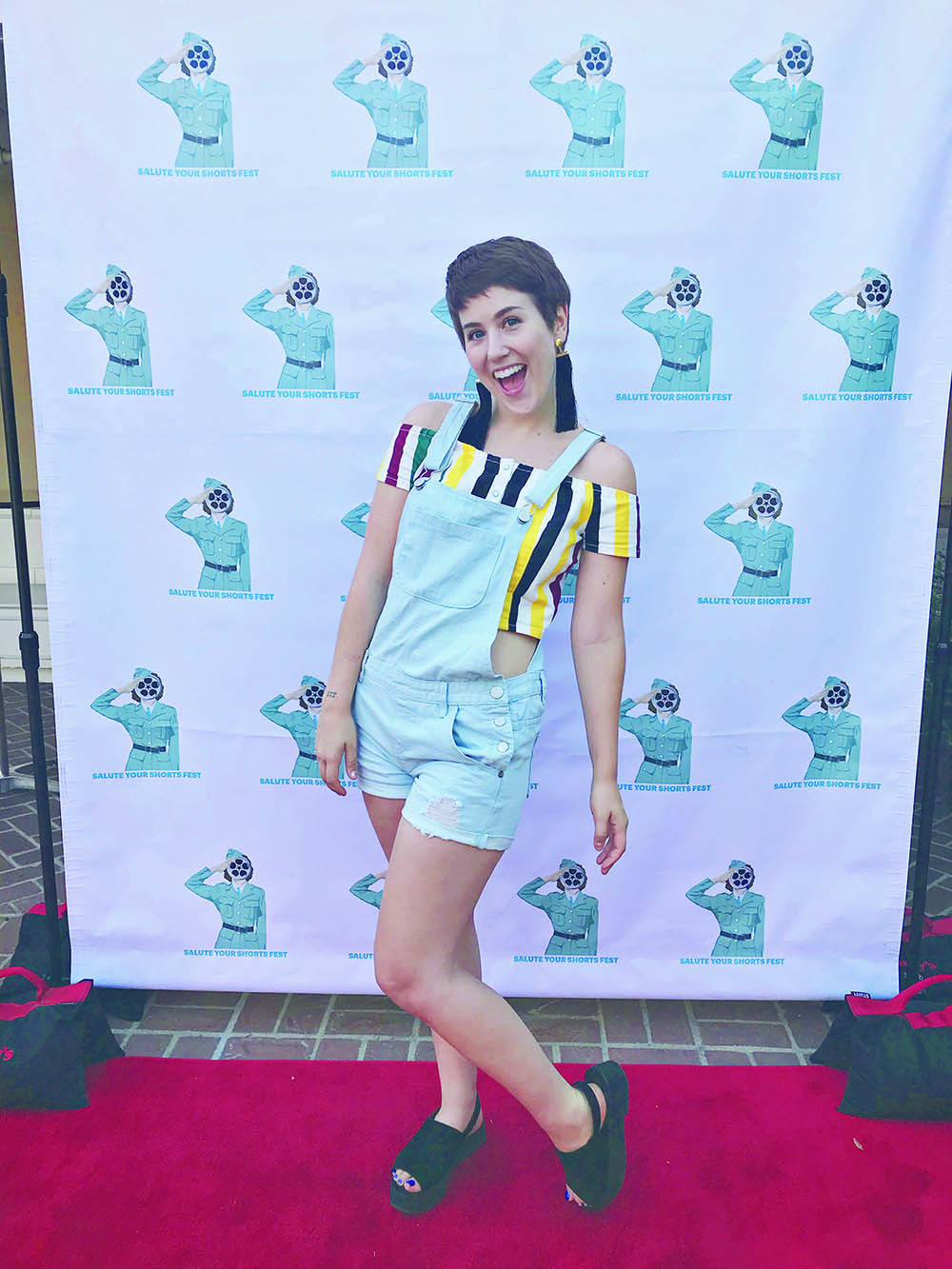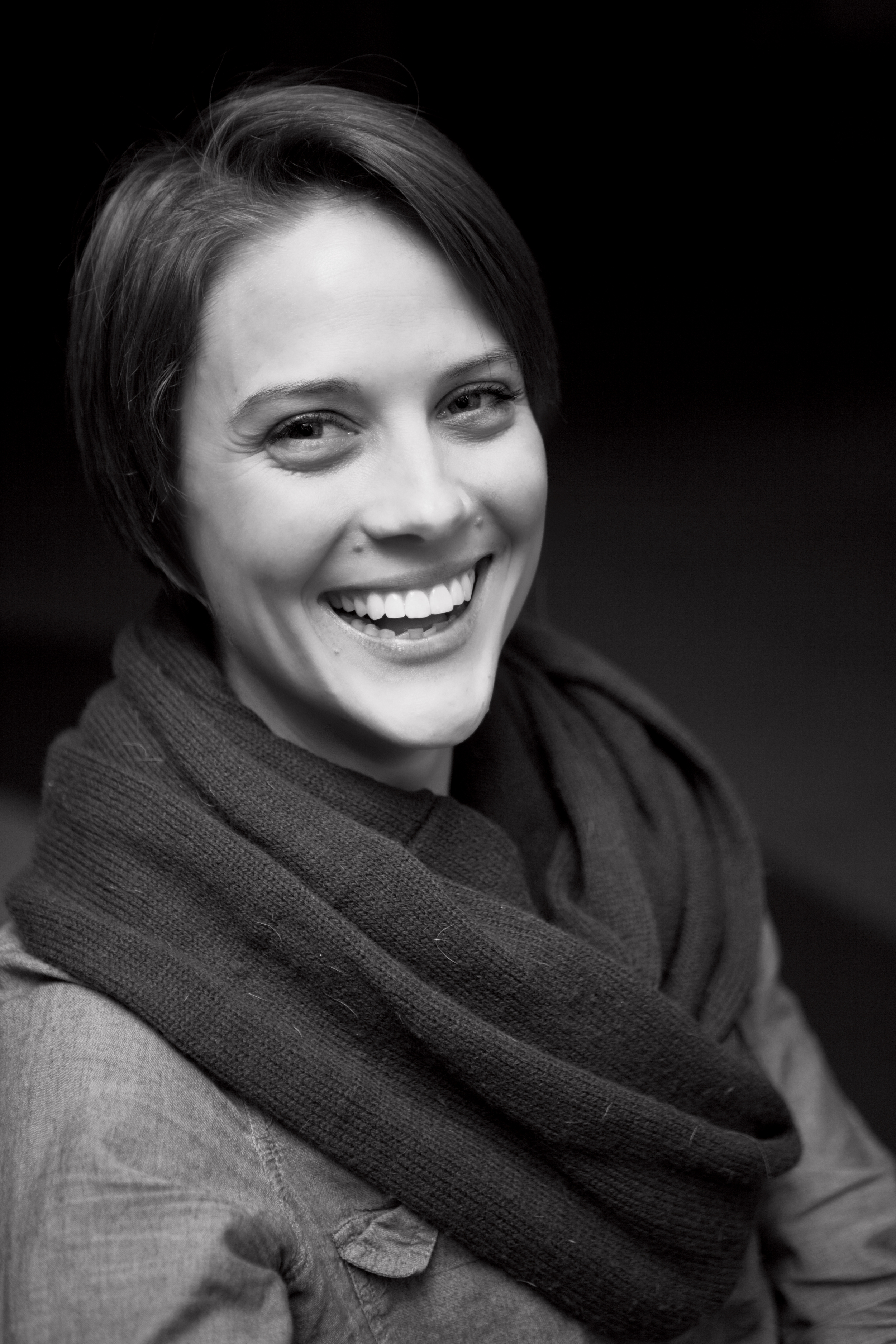Laura Holliday

Not too far removed from her days at Greenbrier Valley Theatre, Lewisburg’s own Laura Holliday’s recent digital sketch series for Comedy Central, “Brief and Futile Love Stories,” hit the web in December. It’s yet another bright spot in her rising career, where her fresh, inventive situational sketches are drawing attention throughout the industry. We caught up with Laura over coffee in Lewisburg and chatted about her Greenbrier Valley past, and what the future holds.
You spent most of your childhood in Greenbrier Valley. Tell us about that.
I started taking theater at GVT (Greenbrier Valley Theatre), acting in their productions when I was about 4. I loved theater right away. I went to Kids College (Carnegie Hall’s summer arts camp) every year. So, I got a ton of arts education in Greenbrier Valley. It was all great.
But you had other aspirations?
I was interested in film. My friends and I made YouTube videos, but there wasn’t tons to do with film here. Once I realized I wanted to do that more than just focus on theater, I ended up applying to this school in California at 16. I looked at the theater program and the film program and decided that film was more up the alley of what I wanted to do.
What was it about film that attracted you?
I loved writing and acting. I didn’t really know what a director did, but I was interested in it.
So, you moved to California?
Yeah, at 16 I moved to California to go to Idyllwild Arts Academy, which is in a town that’s a lot like Lewisburg. It’s like a west coast Lewisburg. That made it a little easier to move across the country. It was another tiny town.
Basically a specialized high school?
Yeah, yeah. So it’s an art school with different majors. Everybody had to come in with a major. They had theater, film, music, orchestra and jazz. Then they had visual arts and dance. There were about 200 kids and the school’s whole goal was to keep us away from everything that would distract us. So, everybody was pretty obsessed with what they were doing.
There you did all your academics in the morning, and then you did all your film and art classes at night. It was really kind of like a college program, so I got to start making shorts then.
Did you matriculate into a collegiate program?
Not right away. I actually didn’t get into the top few colleges that I wanted to go to. I wasn’t sure I wanted to be in another film program either; I was a little confused because I had done 2 years of it. I wondered, should I just be out there making stuff? Should I be studying something else? Do I want to go back to acting? It just didn’t feel right to spend a ton of money on a program I wasn’t sold on, or didn’t feel right for.
What did you do?
One of my friends from that high school who was a dancer was moving to LA and needed a roommate. I ended up moving with her, and I got a job as an assistant at a music management place.
Did you continue working on your craft?
I started taking improv classes at Second City. I was trying to figure everything out. I thought, well, I love Tina Fey, Steve Carell. All these people I look up did the Second City program. For 2 years I just did improv and worked. Then I found a college program in LA that was commuter. I didn’t want to go live in a dorm again.
Tell me about the college.
The college was ArtCenter College of Design which was really not in my wheelhouse. I was better at the acting and writing side of things, and it was very design-oriented and technical. They were known for good cinematographers and editors, so it was a really hard foundation.
What made the ArtCenter program challenging?
We were learning how to think more visually. It ended up being really good for me. I started making shorts with the people I knew from these comedy theaters. That ended up being a pretty good system.
We had one class where you had to make a short film every single week based off of a prompt. That was a good practice at making myself put them online. Like, even if this is bad, I’m going to practice putting it out into the world instead of keeping my work hidden before it’s perfect.
So, tell me more about shorts. How do they fit in the industry?
A short film is often meant to stand on its own as an enjoyable thing to watch from beginning to end. But, more than anything else in the industry, it’s supposed to be a way to show what you can do, what you’re good at, and your sensibilities as a filmmaker.
What was your goal in making these shorts?
It was a chance to show what I was already good at to people and also to keep getting better. I think if you’re waiting to make a really expensive, huge short or waiting to make a feature before you make anything, then you don’t really have a chance to get better. You have to direct to get better at directing.
What was it like to put out so much work even when you knew it wasn’t perfect?
Well it’s vulnerable and it hurts. But I think it helps if you make it less of a big deal, and just throw your stuff out there. Be like, well, I’m a filmmaker; I make stuff and put it out there.
Who are some of your early influences?
In terms of people who influence me, I always talk about Tina Fey. Her stuff is so funny and it moves so fast which I appreciate. I just want to tell the funniest story fast, and not waste any time. I watch 30 Rock and Kimmy Schmidt, the shows that she’s made. They keep the pace in my head.
Do you know who Michael Showalter is?
That sounds familiar, remind me.
He did The Big Sick. I love that he does stuff like Wet Hot American Summer which is bananas and dumb, visually quick and funny, and then he moved onto things like The Big Sick and a movie called Hello, My Name is Dorris. I like people who have a comedic sensibility but are able to find visual ways to show emotion and darker stuff.
That’s difficult juxtaposition to manifest.
Yeah, you want people to be able to laugh with your character and at your character, but also know that it’s coming from a true place.
What are some of the themes you find in your work?
I’ve been for the last few years−and probably a little bit longer−exploring a lot about modern relationships. How things are different now as the world changes. How our idea of what we want in a relationship changes. Idealism versus reality; having characters figure out what they can realistically get versus the ideal living in their head.
Is there a genre that speaks to you?
I love rom-coms. I think rom-coms, at least classic rom-coms, are all about ideal. I want to use that to show what’s realistic and make fun of the ways we all live in our fantasy world.
There’s something about well-done rom-coms that are universally appreciated.
Everybody can relate to wanting to fall in love and wanting to have a good relationship. But, I’m interested in twisting that genre to be more self-aware and make fun of itself.
You recently wrote, directed and starred in a sketch series for Comedy Central. Tell me more.
That’s a good segue actually, because I had been writing sketches based on my own frustrated dating experiences in LA. Every time I got hurt or frustrated, I dealt with it by just channeling it into writing. I had a handful of these sketches about dating that I thought were funny, and I had been doing my first year of general meetings. That means showing up to different offices in town that are making the type of content that you might want to make. It’s almost like a first date meeting.
I had a meeting with Comedy Central that was great. My manager and I, just on a whim, decided to send these sketches around. I was surprised when Comedy Central called us and said, “We want to buy all of them.”
Just like that, you were shooting for Comedy Central?
Yeah, it was a quick whirlwind thing, just a 3-day shoot.
What led up to that? What was some of the work you already had in your portfolio?
While I was still in school, I started making videos for and with FunnyorDie.com, which is a website that Will Ferrell started. For a long time, their bread and butter was short-form sketches. I made a video with them called A Movie For Women By Men, a trailer for a fake rom-com. It made fun of all the ways that women are incorrectly depicted in film. That video did really well online and got over a million views. That was a good calling card to send.
I also had a short film called Disfluency. That was the first dramatic piece I had done. I didn’t write it; my friend Anna Baumgarten wrote it. It was about sexual assault on a college campus. We got some really great actors involved with that, who were up-and-coming in TV, and we got some really good press coverage online. IndieWire did a write-up.
What’s next for you?
I’m figuring it out. In a way, that’s exciting. I’m writing two different TV show projects with friends, a group of female friends from Second City that I met doing improv. I’m also writing a show with Andrew Vass about millennials in West Virginia. That would be a half-hour comedy show that we would pitch somewhere like Comedy Central. We’re editing that right now. I’m learning what it takes to develop and pitch a TV show. Later in the year I’ll be pitching those.
Also, I’m writing a feature film I plan to act and direct in but that’s still in very early stages.
Are you doing any acting?
I’m starting to audition more as an actor, just to grow in that way and to get jobs that are not just me having to do all of it from my own brain. It’s nice to just show up on set as an actor and just do that one piece. I’m seeing where I sit in this world as an actor, when I’m not casting myself and playing a version of myself. I was in a pizza commercial last year. That was my first commercial job That’s a new world to me,too, doing the LA actor thing while I’m developing these other longer projects that I’m passionate about.






